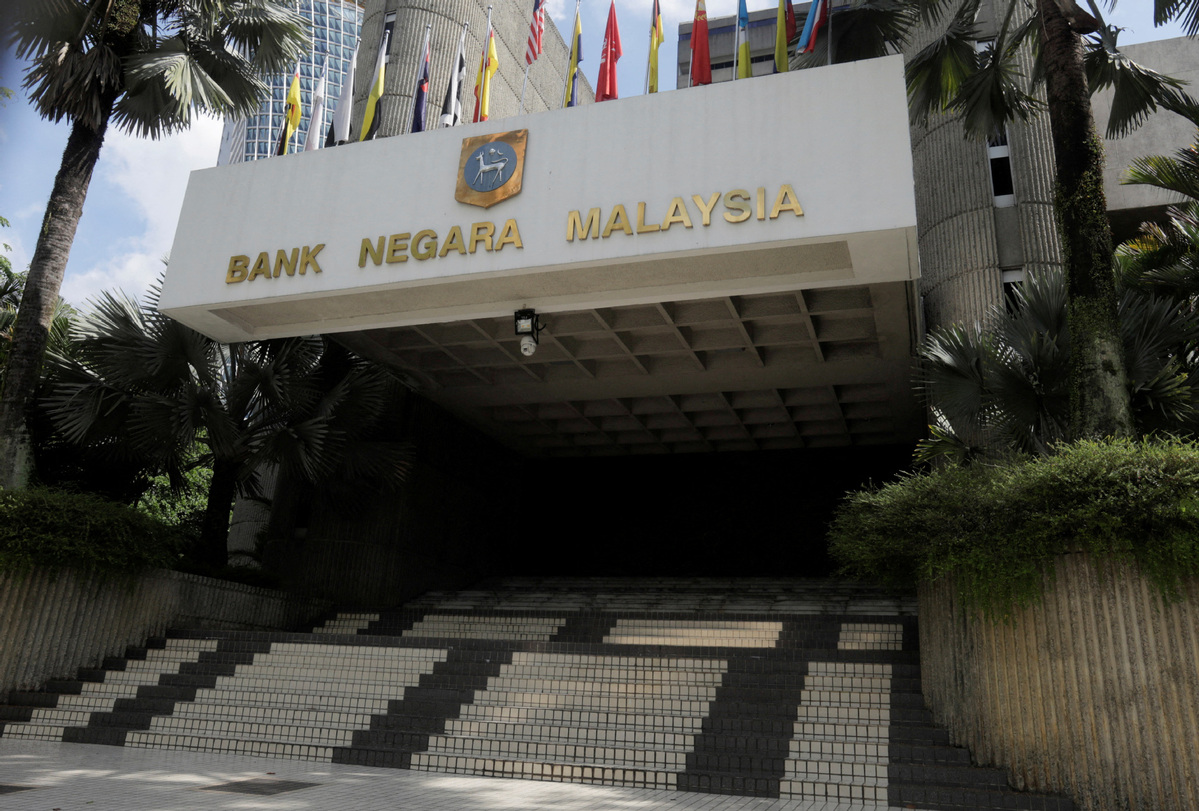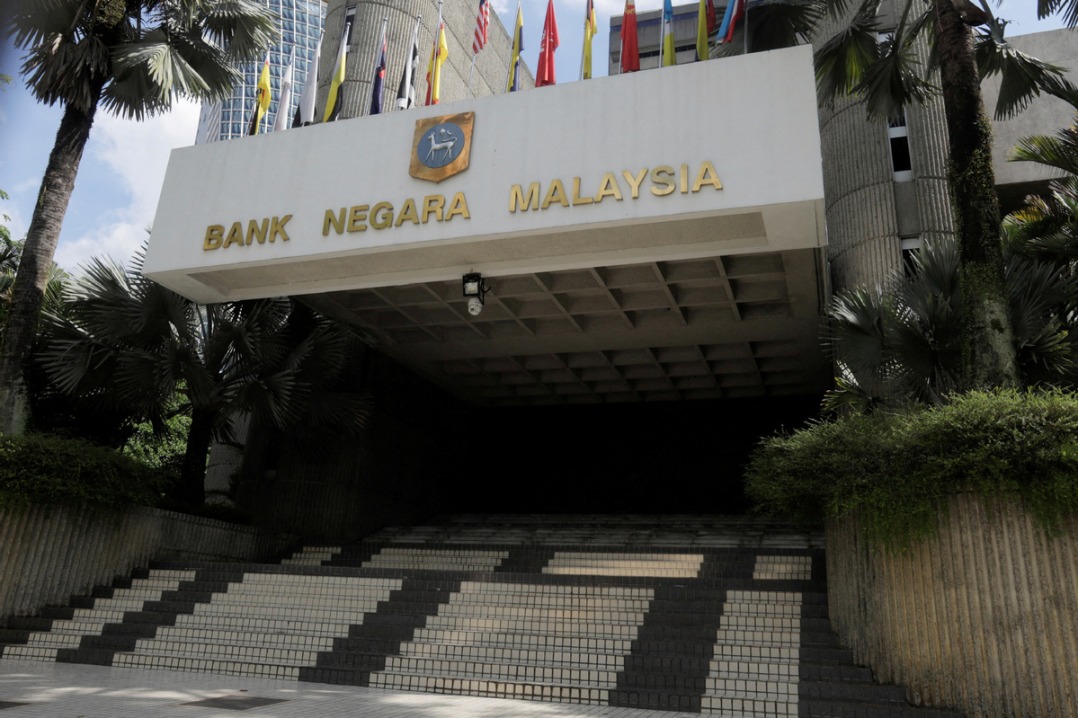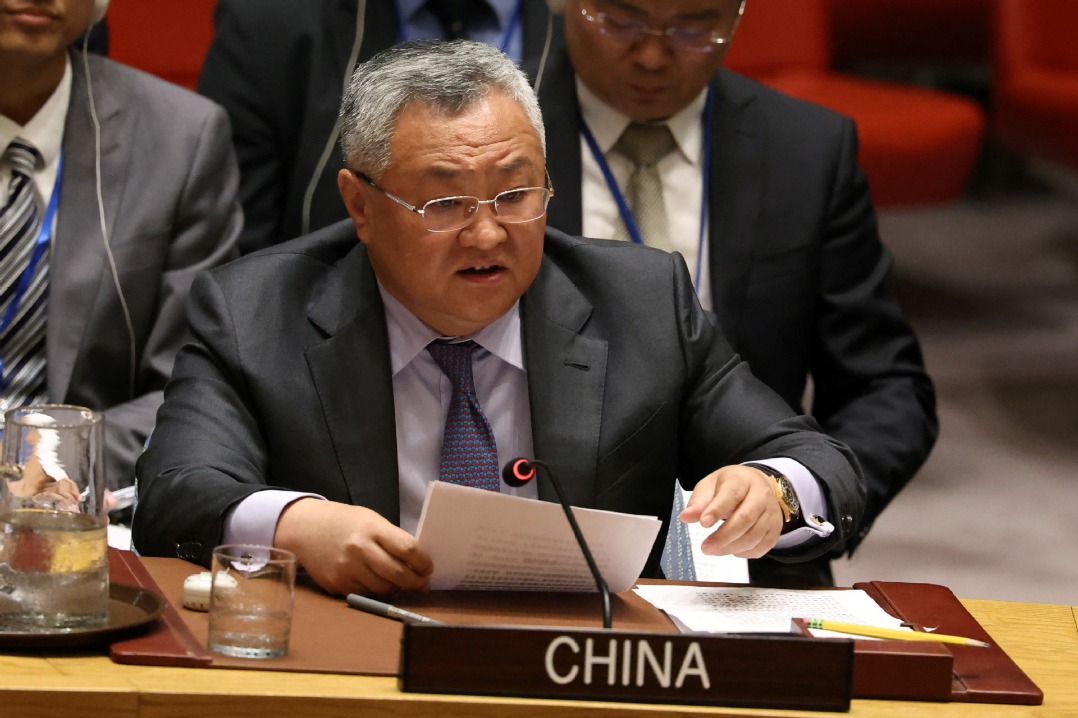ASEAN accelerates de-dollarization
US erratic policies prompt move as renminbi gains traction, experts say


Whenever he travels around the Southeast Asian region or to China, Malaysian private equity investor Ian Yoong Kah Yin always uses his e-wallet to settle all payments. Yoong, a former investment banker, seldom travels with a big chunk of cash, preferring to use an app he downloaded on his phone so he can use a QR code to pay in Malaysian ringgit or any local currency.
Yoong said using a QR code is not only convenient but also cuts transaction costs as he does not need to convert ringgit to US dollar first and then to another local currency, avoiding double currency conversion rates.
The reduced role of the US dollar and the growing role of the Chinese yuan and local currencies used by members of the Association of Southeast Asian Nations is "inevitable", according to Yoong, who noted there are about 100 banks in the ASEAN region that are part of the yuan-based Cross-border Interbank Payment System, or CIPS.
"ASEAN economies are accelerating the move away from the US dollar as geopolitical uncertainties, monetary shifts and increasing currency volatility prompt de-dollarization in the region," Yoong told China Daily. He said Washington's "erratic trade policy decisions" combined with the recent "sharp underperformance" of the US dollar are fueling a rapid shift to other currencies.
Yoong's personal experience and insights on using more Chinese and ASEAN currencies in cross-border transactions reflect how ASEAN countries are gradually reducing their dependence on the US dollar to cut transaction costs, enhance efficiency and mitigate the impact of foreign exchange fluctuations.
ASEAN leaders have committed to promoting local currency settlements, as stated in the ASEAN Economic Community Strategic Plan 2026-2030 adopted at the 46th ASEAN Summit held on May 26 in the Malaysian capital city Kuala Lumpur. The regional bloc aims to deepen financial integration and inclusion through several measures such as liberalizing capital accounts to facilitate seamless cross-border investments and financing, strengthening regional payment connectivity and promoting local currency settlements. Enhancing payment connectivity is also seen as aiding trade and investments in the region.
The strategic plan was formulated at a time when the US dollar, which has long dominated global trade and investment, was sinking to multiyear lows. On April 21, for example, the US Dollar Index fell to a three-year low following US President Donald Trump's criticism of Federal Reserve Chair Jerome Powell.
On June 26, the dollar sank to a fresh three-year low on the back of a report that Trump was considering nominating the next Fed chair early or a few months before Powell's formal departure in May 2026.
Fragility underscored
Dutch investment bank ING said the escalating tensions in the Middle East "underscored the recent fragility" of the US dollar. "A spike in geopolitical risk and oil prices should have sent an oversold and undervalued dollar soaring, but the support for the greenback was instead small in size and duration," ING said in its research paper on June 26.
Nawazish Mirza, a professor of finance at the Excelia Business School in France, said by allowing direct payments in local currencies, ASEAN states have reduced their reliance on intermediary currencies such as the US dollar, and this has led to lower transaction costs, reduced exchange rate risks, and enabled faster settlement times.
Mirza said ASEAN's move toward de-dollarization has been "unmistakable" over the last two years. He noted that in 2024, the share of intra-ASEAN trade settled in local currencies was above 25 percent, compared to less than 10 percent in 2019.
While the US dollar remains dominant overall, accounting for over 70 percent of global trade invoicing, ASEAN's initiatives to promote local currencies and the renminbi are gaining traction, he said.
Mirza said policies such as currency swap lines, bilateral local currency settlement agreements, and digital payment innovations, are making non-dollar settlements more viable and attractive.
"The speed of this transition will depend on sustained market confidence, liquidity, and the stability of these alternative currencies," he said.
Ying Jian, principal strategist at Bank of China's Hong Kong Financial Research Institute, said Chinese enterprises are the "most active participants and promoters" of the international use of the renminbi, and their growing presence in ASEAN has spurred demand for renminbi settlement, trading and financing.
In a research paper published in 2024, Ying wrote that in 2023, the renminbi cross-border receipts and payments for trade in goods between ASEAN and China exceeded 2 trillion yuan ($279 billion) for the first time, or 47.8 percent higher than the level in the previous year, and accounted for over 30 percent of the total bilateral trade.
Ying also noted that China supports ASEAN's move to explore local currency settlement.
The People's Bank of China, the nation's central bank, has signed bilateral currency swap agreements with the central banks of Thailand, Malaysia, Indonesia and Laos.
Mirza also hailed ASEAN countries' decision a few years ago to implement a QR code payment system that allows direct payments in local currencies, noting this represents a "significant leap" for ASEAN's regional integration.
As early as 2020, Cambodia and Thailand launched a cross-border QR payment system. Singapore's payment linkage with Thailand was established in 2021, and it launched a pilot with Indonesia in 2022. Five Southeast Asian central banks — Indonesia, Malaysia, the Philippines, Singapore, and Thailand — signed a memorandum of understanding on regional cross-border payments ahead of the G20 summit held in Bali, Indonesia, in November 2022.
Payment connectivity
At the 42nd ASEAN Summit held in May 2023 at Labuan Bajo, Indonesia, ASEAN leaders signed an agreement to advance regional payment connectivity and promote local currency transactions.
"The QR interoperable payment system is the way to go," said Joanne Lin Weiling, a senior fellow and co-coordinator of the ASEAN Studies Center at the ISEAS-Yusof Ishak Institute in Singapore. She said this system promotes regional integration and trade and enhances the region's resilience against external headwinds, including growing trade protectionism.
Lin, who has used digital wallets while traveling around the region, can personally attest that a QR code payment system is "quicker, more convenient and easily accessible by all citizens as long as they have a smartphone, and bank account that is linked to QR payment".
Kriengsak Chareonwongsak, president of the Bangkok-based Institute of Future Studies for Development, said it is crucial for countries like Thailand to promote the use of renminbi to facilitate cross-border payments, given ASEAN's strategic economic ties with China. He cited Bangkok Bank, which is the first Thai bank approved by China's central bank to become a direct participant in China's CIPS.
In a statement released in April, Bangkok Bank said becoming a direct participant allows it to facilitate direct international transactions in renminbi via CIPS. This reduces transaction time and ensures faster payments, the bank said.
"If they reduce the use of the US dollar (in international transactions), where do they go? They have to go for alternatives. And renminbi is one alternative," he said.
For Mirza of Excelia Business School, the main benefits of using the renminbi include reduced foreign exchange costs, diversification of reserves, and closer trade links with China.
"Furthermore, while the People's Bank of China has signed several bilateral swap agreements with ASEAN central banks, the operationalization of the renminbi as a primary settlement currency still lags behind the US dollar in scale and acceptance. For ASEAN, the key is balancing diversification with financial stability, especially as renminbi's full internationalization remains a gradual process," he said.
Leonardus Jegho in Jakarta contributed to this story.
prime@chinadailyapac.com

































